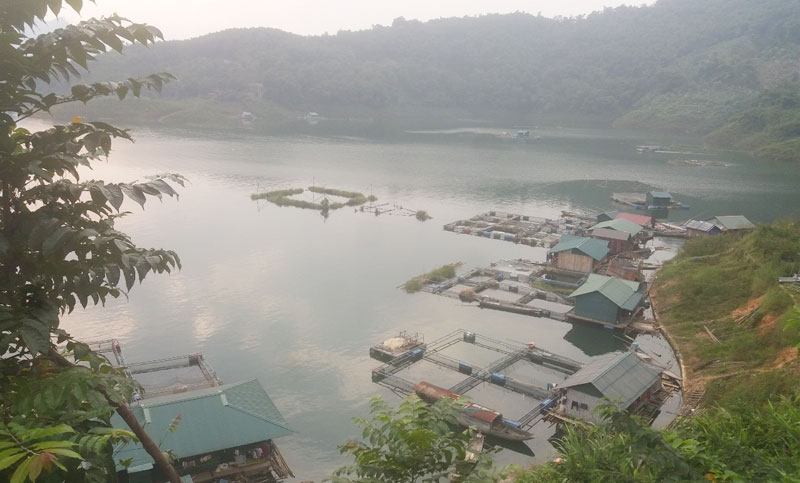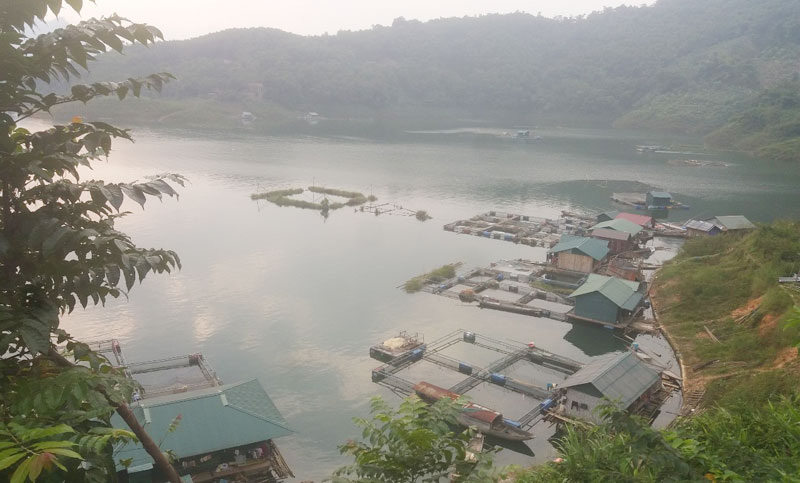


More than 40 years later, with practical support policies, lives of those residents went through various changes.
 Caged
fish farming and tourism development are among the orientations for economic
growth of villages around Hoa Binh reservoir in Hoa Binh city.
Caged
fish farming and tourism development are among the orientations for economic
growth of villages around Hoa Binh reservoir in Hoa Binh city.
To stabilise people’s lives, provincial People’s Committee rolled out a number of support programmes and projects in the locality. Over the recent past, the committee has approved a project linking the production with consumption of caged farming fish on Hoa Binh reservoir.
Accordingly, firms will work with locals to organise a production chain in tandem with consumption of fishery products under VietGAP standards within three years. As many as 100 cages will be produced, which is projected to raise over 518 tonnes of fish, raking in more than 20 billion VND (865,000 USD).
Additionally, Party organisations and authorities of Hoa Binh commune and Thai Binh ward viewed tourism around the reservoir a strength in terms of economic development. In many villages, households make use of natural landscapes comprising of forests, the reservoir and cultural identity to develop community-based tourism.
Bich Tru village is home to 43 families with stilt houses. Located on a favourable location with a view of the reservoir and clean atmosphere, local families are working to turn their houses into an attractive tourist destination.
As a result of the support policies, including on-going road building projects, people’s lives witnessed various changes. Of them, roads leading to Thau and Voi villages (Thai Binh ward) were opened to traffic years ago, while that linking Bich Tru village with Vay Nua (Da Bac district) is under construction and expected to complete soon, offering chances to bolster trade, production, regional linkage and improve people’s lives./.